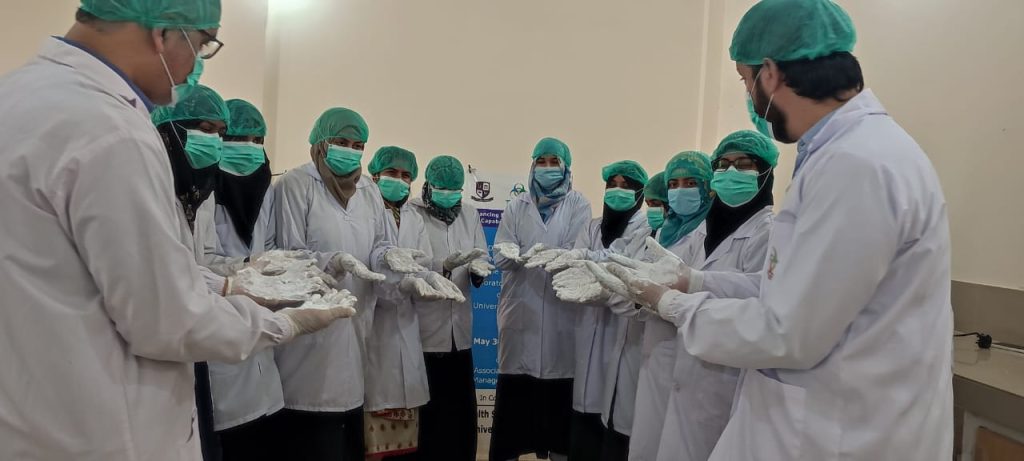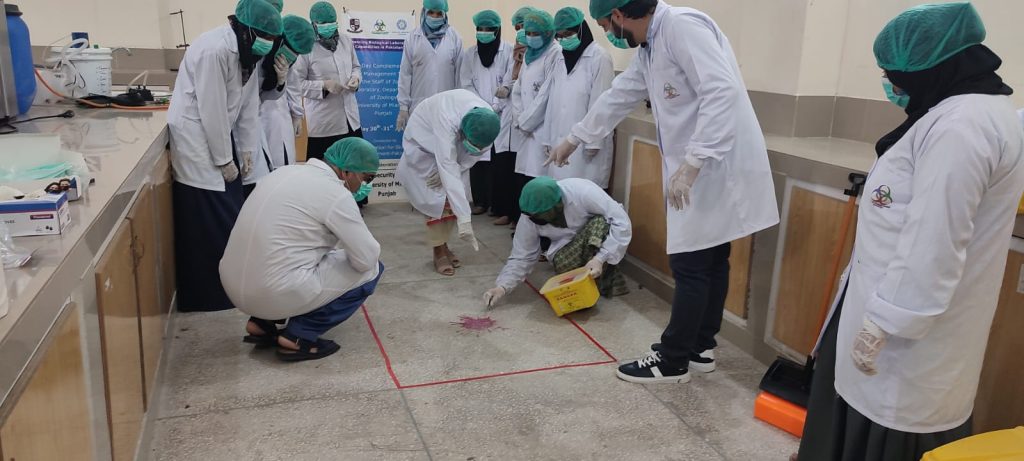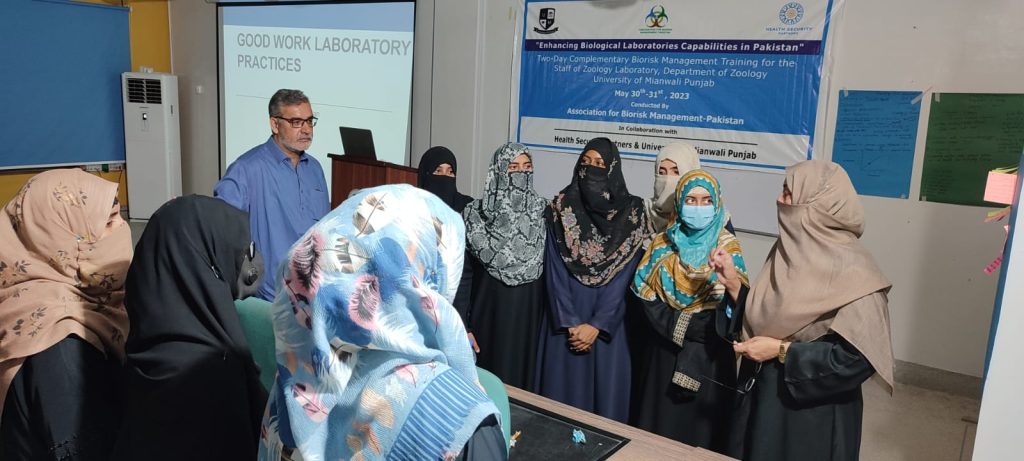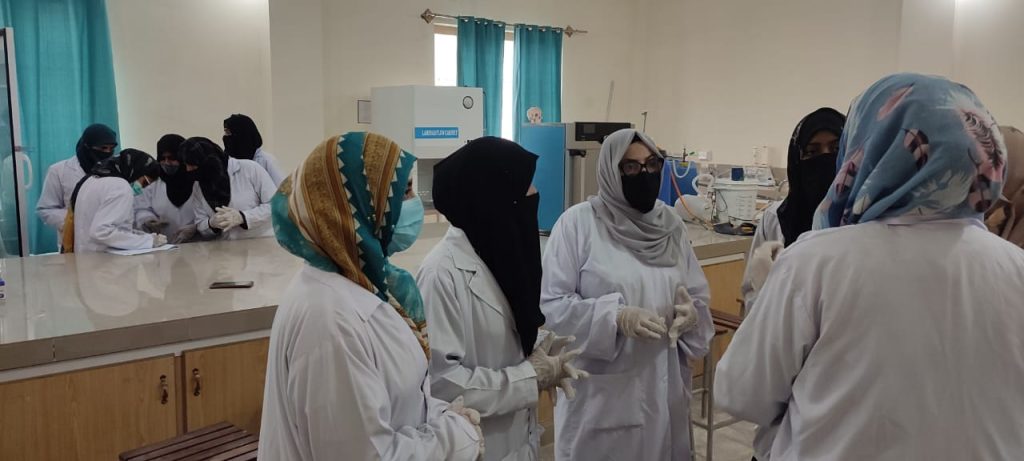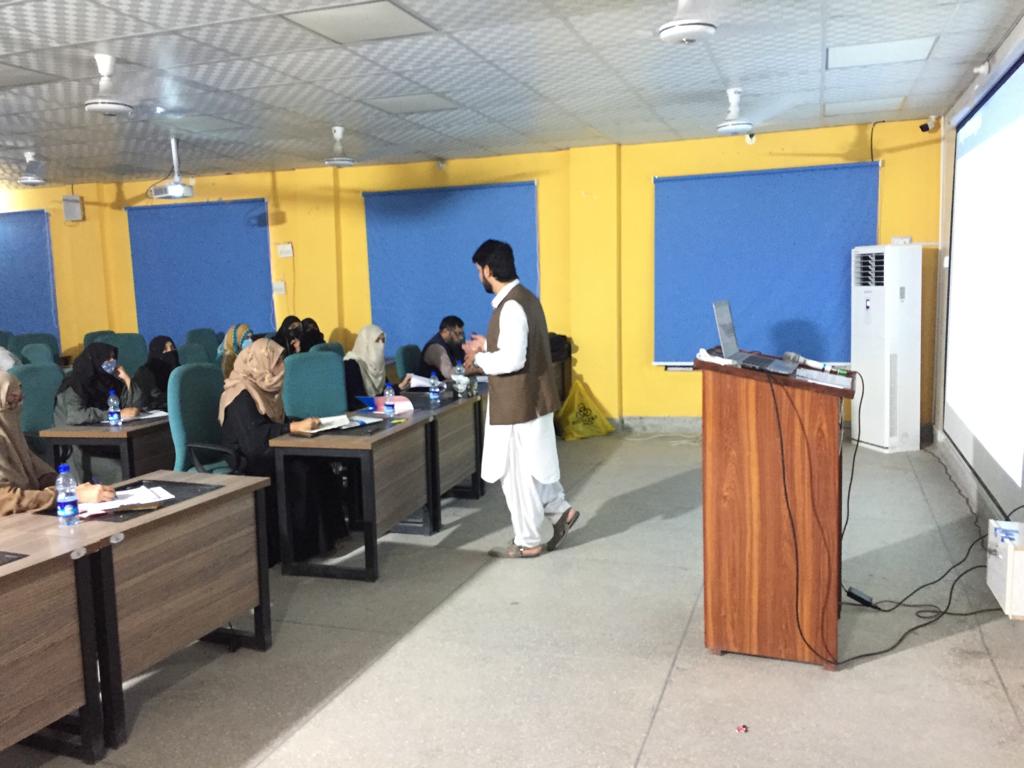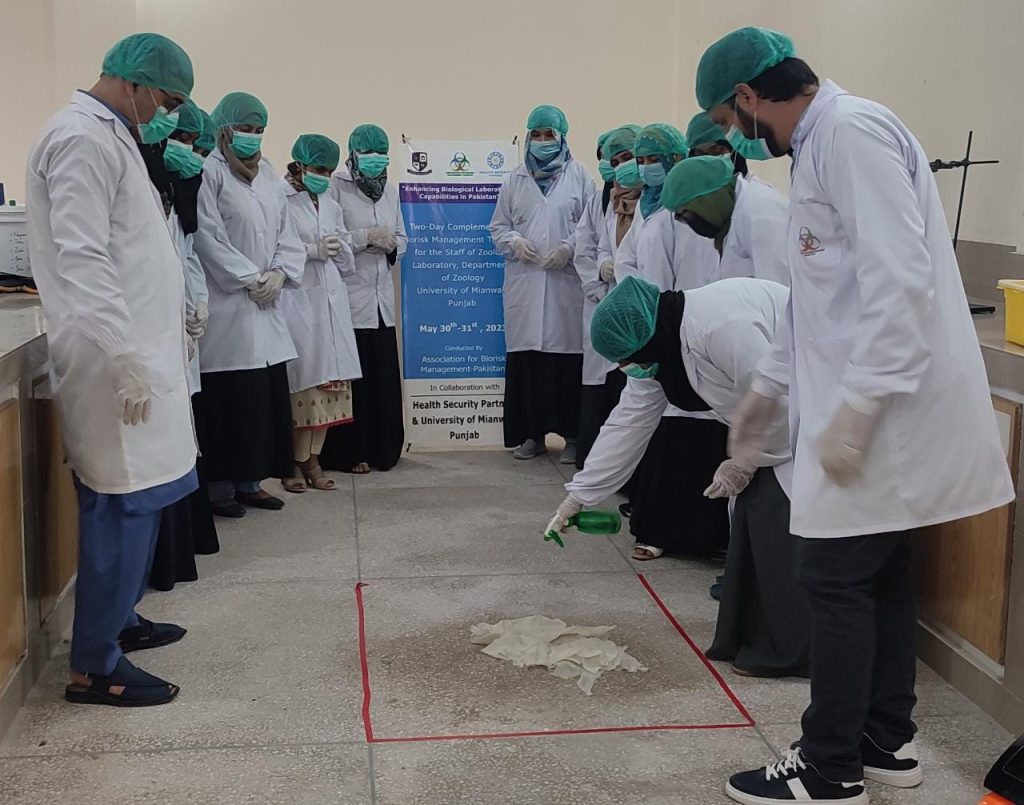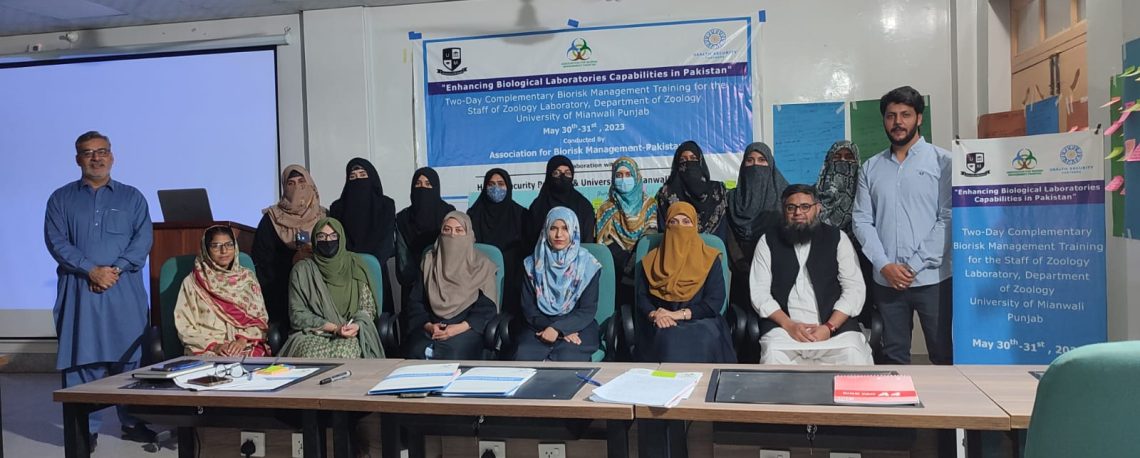The Association for Biorisk Management (ABM) have recently organized a highly informative and interactive 2-day training workshop on enhancing biological laboratory capabilities in Pakistan from May 30 to May 31, 2023.
The trainees of the session are biosafety and biosecurity experts, Dr. Muhammad Tayyeb and Mr. Mahboob Khan, the training sessions were conducted with great expertise and were praised for their interactive and knowledgeable approach. Participants were provided with comprehensive insights into the best practices and techniques for enhancing biological laboratory capabilities for various scientific and research purposes.
The closing ceremony, held on May 31, 2023, was graced by the presence of worthy Vice Chancellor Prof. Dr. Islam Ullah Khan. He highlighted the significance of such training programs in the professional development of staff and emphasized on the university’s commitment to promote excellence in research and scientific methodologies. He also assured his continuous support in arranging such joint activities to promote safe research culture in the region.
Dr. Zahida Nasreen, Incharge Department of Zoology, delivered a vote of thanks to the ABM team and the trainees for their professional and congenial approach throughout the workshop. She expressed her sincere gratitude to ABM and requested for continued collaboration and support from ABM in future endeavors to further strengthen the university’s research capabilities.
This training workshop on enhancing biological laboratory capabilities, has not only equipped participants with essential skills and knowledge but has also fostered collaboration and exchange of ideas among professionals in the field. ABM remains committed to providing further support and training opportunities to our institution and individuals in their pursuit of excellence in biosafety and biosecurity practices.
